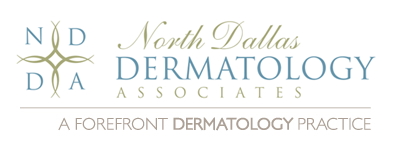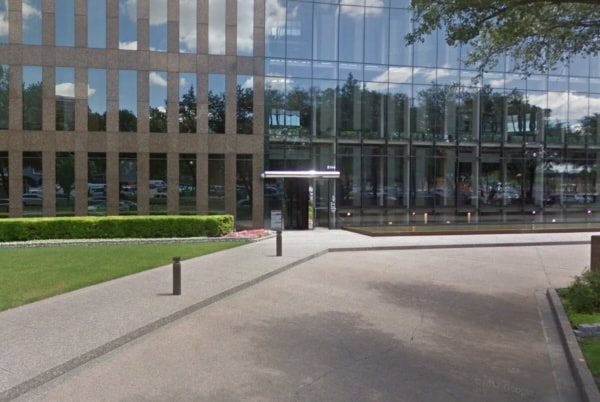Achieving Skin Clarity

- Posted on: Jun 1 2023
Persistent acne, growing birthmarks, sunspots, dark spots, unrelenting eczema, or unpredictable rosacea flare-ups. These skin blemishes can chip away at our self-esteem and overall skin health. With the guidance of a medical professional, you can achieve skin clarity and discover effective solutions for your skin concerns. Our providers at North Dallas Dermatology have the expertise to assess everyone’s unique skin needs and provide customized treatment plans. In this blog, we will explore common skin blemishes and treatment options.
Acne
Acne is a common skin condition presenting as pimples, blackheads, whiteheads, and in some cases, cysts. It typically occurs when hair follicles become clogged with dead skin cells, oil, and bacteria. The cause of acne has many factors and can vary from person to person.
Some common factors that contribute to acne:
- Hormonal factors
- Excessive sebum production
- Bacterial infection
Treatment options for acne:
- Topical Medications: Topical treatments containing ingredients such as benzoyl peroxide, retinoids, salicylic acid, or antibiotics. These ingredients help reduce inflammation, unclog pores, and control bacterial growth.
- Oral Medications: In more severe cases, oral medications like antibiotics, hormonal contraceptives, or isotretinoin may be prescribed.
- Chemical Peels: Chemical peels containing solutions such as alpha hydroxy acids or salicylic acid exfoliate the skin, unclog pores, and improve acne.
- Laser or Light Therapy: These treatments target the bacteria or oil production associated with acne, reduce inflammation, and promote skin healing.
It’s important to consult with a dermatologist to determine the most suitable treatment options for your specific skin type. They can assess your condition, consider factors such as acne severity, skin type, and medical history, and develop a customized treatment plan to help you achieve clearer, healthier skin.
Birthmarks
Birthmarks are colored marks that appear on the skin at birth. They can vary in size, shape, color, and location. Birthmarks are generally classified into two main types: vascular birthmarks and pigmented birthmarks. The exact cause of birthmarks is not always known. Vascular birthmarks may result from abnormalities during blood vessel development, while pigmented birthmarks may occur due to an overgrowth of melanocytes.
Medical treatment options for birthmarks depend on the type, size, location, and potential complications associated with the birthmark. In some cases, treatment may not be necessary.
However, when intervention is desired or required, your options include:
- Laser Therapy: Vascular laser treatments can help fade certain types of birthmarks such as hemangiomas and Port Wine Stains. These treatments reduce blood vessels, and pigmentation.
- Topical Medications: Topical medications may be prescribed to help shrink or fade the birthmark.
- Surgical Excision: In some cases, surgical removal of the birthmark may be considered.
Consult with a board-certified dermatologist to evaluate the birthmark’s type and determine the most appropriate course of action. Your doctor or physician assistant can determine treatment options, potential risks, and expected outcomes.
Sunspots & Dark Spots
Sunspots are flat, light to dark brown spots that usually appear on sun-exposed areas. Prolonged sun exposure over time leads to the accumulation of melanin, resulting in the development of these spots. They are more common in older individuals and vary in size and shape. Dark spots refer to areas of hyperpigmentation that may occur as a result of various factors. This includes sun exposure, hormonal changes, acne scarring, or skin injuries. Treatment options for sunspots and dark spots aim to lighten the pigmentation and improve the skin’s overall appearance.
Common treatment options:
- Topical Creams: Topical creams to lighten and fade the spots gradually.
- Chemical Peels: Chemical peels exfoliate the top or middle layer of the skin, encouraging the growth of new, even-toned skin.
- Microdermabrasion: This procedure involves gently exfoliating the skin to remove the outer layer of the skin, promoting collagen production, and rejuvenating the skin.
- Laser Therapy: Various laser and light-based treatments can target and break down excess melanin.
- Cryotherapy: Cryotherapy involves freezing the affected areas using liquid nitrogen, causing the sunspots or dark spots to gradually fade.
Additionally, adopting sun protection measures, such as wearing sunscreen and protective clothing, is crucial to prevent the formation of sunspots and dark spots.
Eczema
Eczema is a chronic inflammatory skin condition causing dry, itchy, and inflamed patches of skin. It often appears in childhood or develops later in life. This skin condition can vary in severity, with symptoms ranging from mild discomfort to significant irritation.
The exact cause of eczema is not fully understood, but it is believed to involve a combination of genetic and environmental factors. People with eczema often have a hypersensitive immune system that reacts to certain triggers. Common triggers include irritants, allergens, dry skin, stress, and temperature changes.
Medical treatments for eczema aim to reduce inflammation, relieve itching, and improve the skin’s barrier function.
Eczema treatment options:
- Topical Creams: These anti-inflammatory medications (creams, ointments, or lotions) reduce inflammation and relieve itching.
- Systemic Medications: In severe cases of eczema that do not respond adequately to topical treatments, oral or injectable medications may be prescribed.
- Oral Medication: Oral antihistamines help relieve itching and promote better sleep, particularly during flare-ups.
With the guidance of a dermatologist, you can receive information on proper skincare, recommend suitable medications, and help identify triggers to effectively control your eczema symptoms.
Rosacea
Rosacea is a chronic skin condition that primarily causes redness, flushing, and visible blood vessels. It often develops in adulthood and tends to worsen if left untreated. While the exact cause of rosacea is unknown, factors such as genetics, abnormal blood vessel function, immune system abnormalities, certain foods, stress, and environmental triggers can contribute to the condition.
Treatment options for rosacea aim to manage the symptoms, reduce inflammation, and control flare-ups.
Rosacea treatment options:
- Topical Medications: Topical creams or gels reduce inflammation, redness, and acne-like lesions.
- Oral Medications: oral medications help control inflammation and reduce acne-like breakouts.
- Laser and Light Therapies: Various laser and light-based treatments can target and reduce visible blood vessels, redness, and flushing associated with rosacea.
- Skincare: Using gentle skincare products specifically formulated for sensitive skin and avoiding harsh ingredients are essential in treating rosacea.
Call Us Today!
It’s essential to consult with a dermatologist to accurately diagnose rosacea and develop an individualized treatment plan based on your specific symptoms and needs.
Skin conditions can significantly impact a person’s self-esteem, and in more severe cases, their quality of life. Medical dermatology care offers a diverse range of treatment options to address various skin concerns. If you are struggling with any of these conditions, we invite you to consult with one of our board-certified dermatologists.
At North Dallas Dermatology Associates, we offer customized skincare and aesthetic treatments to address your needs. If you’re looking to diminish skin blemishes, our providers can provide you with treatment options that are appropriate for your skin. Contact us today or call our office to schedule an appointment to start your journey to achieve skin clarity.
Tagged with: acne, birthmarks, blemishes, Dermatologist, Dermatology, eczema, Lesions, Moles, rosacea, skin cancer, Skin check, skin clarity, skin disease, sun damage, sun spots
Posted in: Blog





